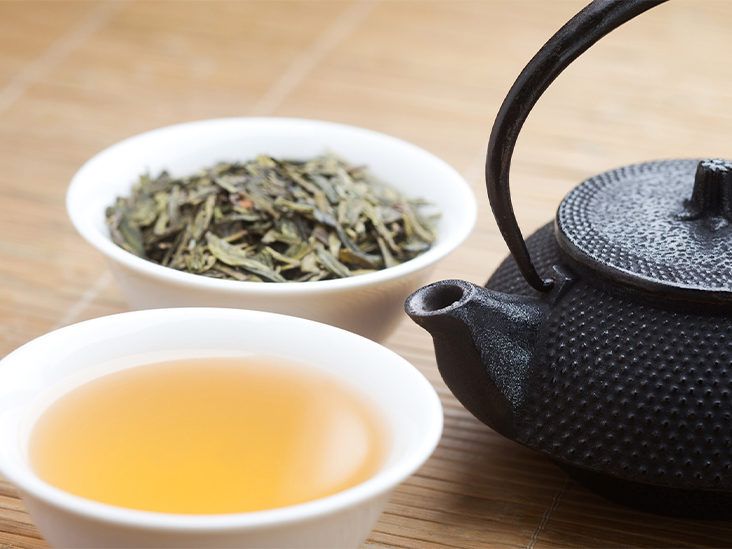Green and black tea have similar health benefits, such as boosting alertness and protecting heart and brain health. Both are high in antioxidants but differ in their components. One isn’t necessarily “healthier” than the other.
Both green and black tea are made from the leaves of the Camellia sinensis plant.
One difference is that black tea leaves are first rolled and then oxidized (exposed to air), whereas green tea is unoxidized. This reaction causes black tea leaves to turn dark brown while green tea leaves remain green.
Black and green tea may have subtle differences in caffeine and antioxidant content but offer similar health benefits.
Shared benefits of green and black tea
While green and black tea differ, they may provide some of the same health benefits.

May protect your heart
Both green and black tea are rich in polyphenols, a group of protective antioxidants. Specifically, they contain flavonoids, a subgroup of polyphenols.
However, the amount of flavonoids they contain differs. Research from 2021 found that black tea had a greater total flavonoid content than green tea.
A 2023 research review of past studies on green tea’s effect on heart health found that its consumption may significantly and positively influence heart health. It may also positively impact diastolic and systolic blood pressure.
Likewise, a 2022 cohort study using data from 498,043 men and women ages 40 to 69 between 2006 and 2010 in the United Kingdom looked at black tea’s effect.
Researchers found that drinking 2 or more cups of black tea daily was modestly associated with lower all-cause mortality risk, including mortality from:
- all heart diseases
- ischemic heart disease
- stroke
Some evidence for green tea, however, suggests that its consumption may not reduce your risk of heart disease.

May boost brain function
Green and black tea both contain caffeine, a stimulant.
Green tea contains less caffeine than black tea — about 29 milligrams (mg), compared with 47 mg for the same serving of black tea.
Caffeine may potentially:
- increase alertness
- decrease reaction time
- decrease fatigue
- decrease risk of depression and suicide
Green and black teas also contain the amino acid L-theanine, which isn’t in coffee.
L-theanine is thought to trigger the release of an inhibitory neurotransmitter in the brain called gamma aminobutyric acid (GABA) in human and animal studies. This brings about a relaxed but alert state.
It also promotes the release of the mood-enhancing hormone dopamine.
Green tea contains slightly more L-theanine than black tea, though the amounts can vary considerably in every cup.
Black tea contains beneficial theaflavins
Theaflavins are a group of polyphenols unique to black tea. They offer many health benefits, all related to their antioxidant ability.
They’re formed during the oxidation process and represent 3 to 6% of all polyphenols in black tea.
These polyphenols can protect fat cells from damage by free radicals and may support your body’s natural antioxidant production.
Theaflavins may also protect you from metabolic syndrome with effects that are:
- antiobesity
- lipid-lowering
- blood sugar-lowering
- uric acid-lowering
- beneficial for gut bacteria

